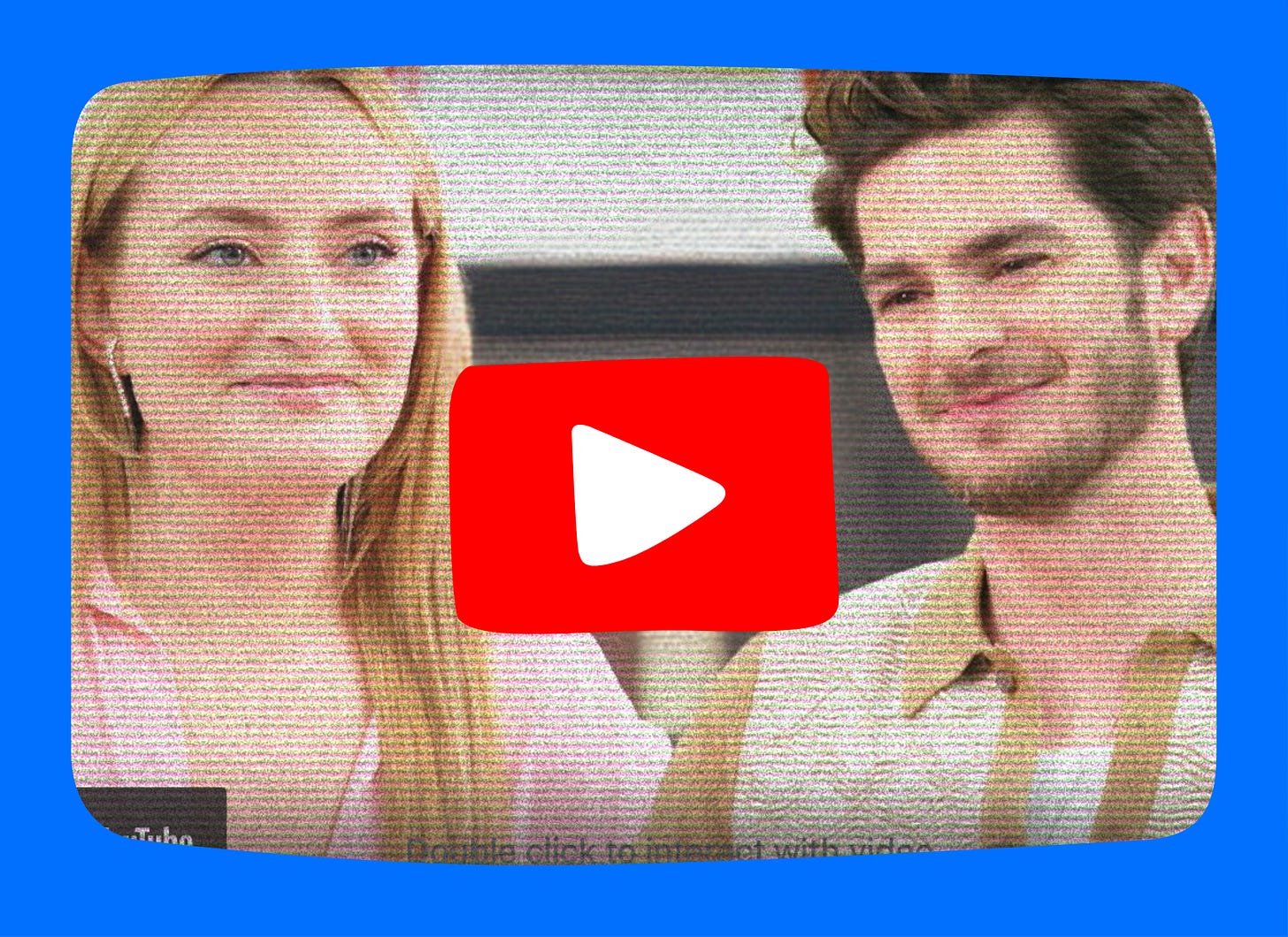TV Producers Flip to YouTube for Money: 'You Have to Be Out There Hustling'
Lower budgets, instant audience: Making series for the free ad-based streaming giant is an increasingly appealing option in a rocky market

Manori Ravindran covers international TV from London for Series Business. She recently wrote about how to get a TV buyer to yes (when budget is the problem), brands funding unscripted shows and Ted Sarandos and Netflix’s impact on the U.K. as a production hub. As a paid subscriber to Series Business, you’ll receive richly reported dispatches from both Manori and Elaine Low for a global perspective on the TV business. This is a standalone subscription separate from The Ankler. For access to Series Business and everything The Ankler publishes, including Sean McNulty's The Wakeup and columns from Richard Rushfield, you can subscribe here.
Once upon a Mipcom, chatter on the ground at the international TV market would revolve around the latest premium drama or splashy unscripted format world premiering in Cannes. The A-lister fronting the show would be flown in to schmooze buyers, and everyone would keep a close eye on sales, hoping for a juicy global streaming deal.
At this week’s market, though, most people I talked to were more energized about YouTuber Amelia Dimoldenberg’s off-the-charts chemistry with Andrew Garfield in the latest episode of Chicken Shop Date than anything they’d so far seen at Mipcom. In the six days since its launch, the 11-minute video has so far garnered 7.2 million views, 20,484 comments, and secured coverage everywhere from CNN to Saint Hoax.
“My competition is no longer rival distributors,” says one bewildered senior executive tasked with translating their company’s IP into digital propositions for YouTube. “It’s the influencers.”
In Cannes, dealmaking isn’t dying off yet: Turkish producer-distributor Global Agency sold the format Celebrity Dreams, in which talent reveal their secret fantasies before they became famous, to Ben Silverman’s Propagate Content within the first five minutes of a boat trip to St. Tropez last Sunday. But those on-the-spot deals are now the exception.
Talk to any formats executive and they’ll tell you how long it takes to get a new unscripted idea off the ground. Even when they do sell, they have less time to prove themselves on air because of constrained budgets. Such risk aversion is leading more producers and distributors to take digital platforms more seriously, and this year’s market felt like a come-to-Jesus moment about YouTube, in particular.
“We have to be entrepreneurial about how we get shows made now,” says Jamie Hall, the London-based co-president of Vice Studios Group. “You can’t spend three years developing a beautifully crafted script with the BBC and then just expect the money to come to you. You have to be out there hustling.”
But can taking the hustle to YouTube actually pay off? Veteran Peaky Blinders and 3rd Rock from the Sun producer Caryn Mandabach, who’s eyeing a future in brand-funded comedies, tells me: “It’s very difficult to bet on yourself, because you’re the one who’s going to lose money.”
But in the current environment, where YouTube now accounts for 10 percent of family room TV viewing, producers feel like they have to be open to take the leap.
While in Cannes for Mipcom, I spoke with Mandabach as well as executives at ITV about how YouTube is making inroads among traditional producers to create original content — after two decades as being seen merely as a promotional platform.
In this issue, you’ll learn:
What the budget is today to produce a slick YouTube series worthy of living-room viewing
How cheaply even broadcasters can now make a YouTube show
Why Caryn Mandabach is so bullish on making 15-minute YouTube comedies
How brands — again! — are emerging as a funding source to mitigate the risk of having to produce shows on spec
The unlikely YouTube series that’s a model for the future of brand-producer partnerships
How one producer views creating for AVOD vs. a regular license fee
Why the company behind The Voice and Love Island is going all in on digital ad-supported platforms from YouTube to Pluto TV to gaming apps like Roblox
Why we may still be two years away from a sustainable model for TV-quality original YouTube series




